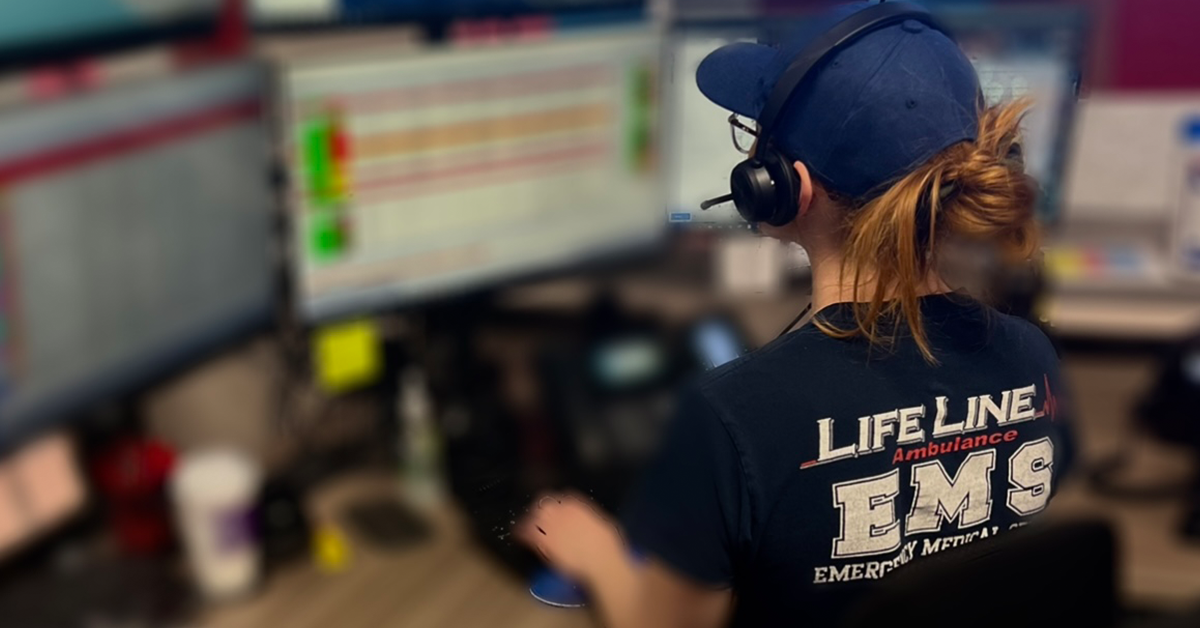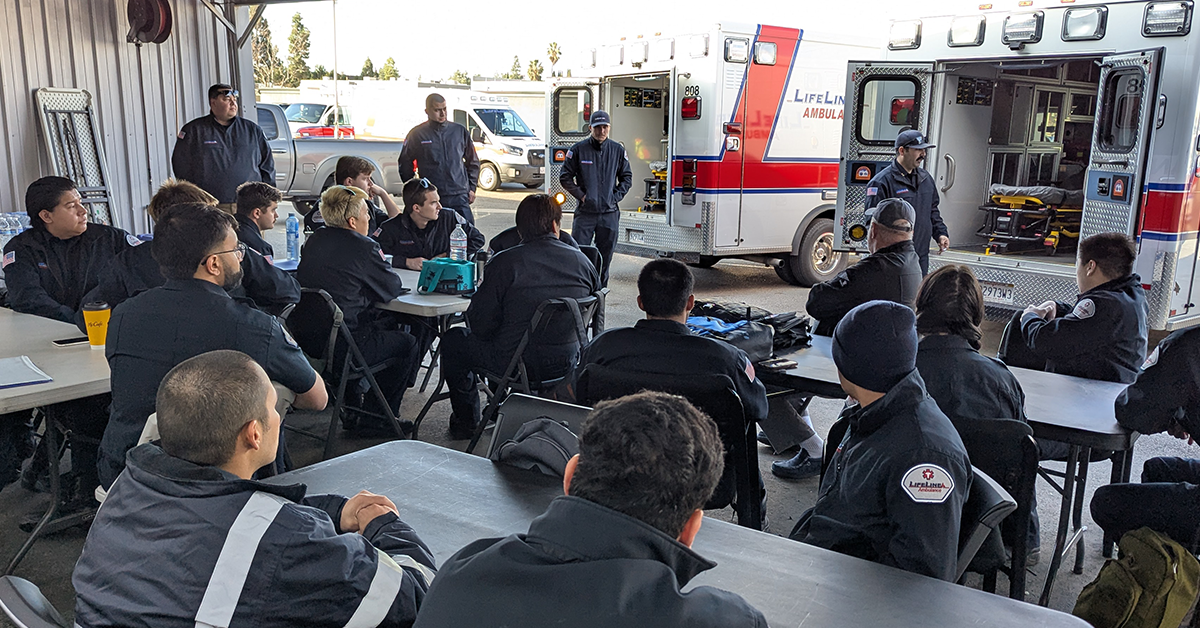Emergency Medical Technicians (EMTs) are the backbone of emergency medical services (EMS), providing life-saving care and ensuring patients receive timely treatment during critical moments. In recent years, the demand for EMTs has surged, driven by factors such as population growth, an aging demographic, and the increasing complexity of healthcare systems. For those considering a career in EMS, there has never been a better time to join this vital field.
This article explores the growing need for EMTs, the factors fueling this demand, and why joining EMS with providers like LifeLine EMS in Los Angeles and Southern California is an excellent career move.
Why the Demand for EMTs is Increasing
The rising demand for EMTs is a result of several interconnected factors, all of which highlight the importance of EMS in the healthcare ecosystem.
1. Population Growth in Urban Areas
The population of metropolitan areas like Los Angeles and Southern California continues to grow, leading to an increased number of medical emergencies. With more people living in densely populated areas, the need for rapid medical response has become more critical than ever.
- Traffic-Related Incidents: Larger populations mean more vehicles on the road, which often leads to an increase in traffic accidents requiring EMS services.
- Public Events: Urban areas host numerous public events, concerts, and sports activities that rely on EMTs to provide on-site medical support.
2. An Aging Population
As the Baby Boomer generation ages, the number of people requiring medical care for chronic illnesses, falls, and other age-related conditions is growing. EMTs play a crucial role in providing emergency care for older adults, particularly during time-sensitive medical emergencies such as strokes and cardiac arrests.
- Chronic Conditions: Older adults often have chronic health conditions that can lead to emergencies requiring immediate intervention.
- Frequent Medical Needs: The aging population also relies on EMTs for non-emergency medical transportation and assistance with mobility challenges.
3. Healthcare Worker Shortages
The healthcare industry is experiencing significant workforce shortages, including a lack of EMTs and paramedics. The pandemic highlighted the importance of emergency medical services and underscored the need to bolster the EMS workforce to meet growing demands.
- Increased Workload: Healthcare systems are facing heavier workloads, leading to a need for more EMTs to support emergency departments and provide pre-hospital care.
- Retention Challenges: Many healthcare workers are retiring or leaving the field, creating a need for new professionals to fill these critical roles.
4. Greater Awareness of EMS Services
Public awareness of EMS services has increased, partly due to media coverage of emergencies and the visible role of EMTs during the pandemic. More people now recognize the importance of EMS and rely on these services for timely medical care.
- Public Dependence: As people become more aware of the benefits of EMS, they are more likely to call 911 during medical emergencies, increasing the demand for EMTs.
- Expanded EMS Roles: EMTs are taking on new responsibilities, such as community paramedicine and disaster response, further increasing their importance in the healthcare system.
Why Now is the Perfect Time to Join EMS
For individuals considering a career in EMS, now is an opportune time to enter the field. The growing demand for EMTs translates into numerous benefits, including job stability, career growth, and the chance to make a meaningful impact.
1. Job Security and Growth Opportunities
The consistent demand for EMTs ensures job stability and a steady stream of career opportunities. Unlike some industries that are affected by economic downturns, EMS is an essential service that remains in demand regardless of economic conditions.
- High Employment Rates: According to the U.S. Bureau of Labor Statistics, employment for EMTs and paramedics is projected to grow much faster than the average for all occupations over the next decade.
- Diverse Roles: EMTs have the flexibility to work in various settings, including ambulance services, fire departments, hospitals, and private EMS providers like LifeLine EMS.
2. Fast Entry into a Rewarding Career
EMS offers a unique advantage for those looking to start a career quickly. EMT certification programs are relatively short, allowing individuals to enter the workforce within a few months.
- Accelerated Training: Many EMT programs can be completed in 3 to 6 months, making it possible to start earning and gaining experience quickly.
- Affordable Education: EMT training is often more affordable than traditional college degrees, reducing financial barriers for those entering the field.
3. Opportunities for Advancement
A career in EMS can serve as a stepping stone to advanced roles within healthcare. EMTs can pursue additional certifications and education to become paramedics, nurses, or healthcare administrators.
- Paramedic Training: Many EMTs choose to become paramedics, gaining advanced skills in critical care and increasing their earning potential.
- Transition to Other Healthcare Roles: EMT experience is highly valued in nursing, physician assistant programs, and other medical fields.
4. Personal Fulfillment and Community Impact
Few careers offer the same level of personal fulfillment as EMS. EMTs have the opportunity to make a tangible difference in people’s lives, often during their most vulnerable moments.
- Saving Lives: EMTs are on the front lines of emergency care, providing life-saving interventions and comfort to patients in distress.
- Community Connection: Working in EMS allows individuals to build strong connections with their communities and contribute to public health and safety.
How LifeLine EMS Supports EMTs in Southern California
For those in Los Angeles and Southern California, LifeLine EMS is a leading provider of emergency medical services, offering unparalleled support for EMTs. By joining LifeLine EMS, individuals gain access to a supportive work environment, career development opportunities, and the chance to work with a respected organization.
1. Comprehensive Training and Onboarding
LifeLine EMS ensures that new EMTs are well-prepared to excel in their roles. The organization provides comprehensive training and onboarding programs that equip EMTs with the skills and confidence needed to deliver high-quality care.
- Skill Development: New hires receive training in advanced medical procedures, patient communication, and emergency response protocols.
- Mentorship Programs: Experienced EMTs serve as mentors, guiding new team members as they navigate their first year in EMS.
2. Career Growth Opportunities
LifeLine EMS is committed to helping its employees grow professionally. EMTs have access to numerous career development resources, including opportunities to specialize and advance within the organization.
- Pathways to Paramedic Certification: LifeLine EMS supports EMTs who wish to pursue paramedic training, offering flexible scheduling and financial assistance.
- Leadership Roles: EMTs with experience can transition into leadership positions, such as field training officers, shift supervisors, or operations managers.
3. Competitive Compensation and Benefits
LifeLine EMS values its employees and offers competitive compensation packages, including benefits that support work-life balance and well-being.
- Competitive Pay: EMTs at LifeLine EMS receive competitive wages that reflect their skills and experience.
- Employee Wellness Programs: LifeLine EMS promotes employee health and wellness through programs such as mental health support and fitness incentives.
4. A Positive Work Environment
LifeLine EMS fosters a positive work culture where teamwork, collaboration, and mutual respect are prioritized. EMTs work alongside skilled professionals in an environment that values their contributions.
- Team Support: LifeLine EMS encourages open communication and collaboration among team members, creating a supportive work environment.
- Community Focus: Employees at LifeLine EMS take pride in serving their local communities, making a meaningful impact every day.
Keep Reading
Want more? Here are some other blog posts you might be interested in.
In the high-stakes world of emergency medical services, clear and effective communication can mean the difference between life and death. EMS professionals...
Emergency Medical Services is an ever-evolving field that requires constant learning and adaptation. With medical advancements, technological innovations, and increasing public health...
Emergency Medical Services s a high-stress, physically demanding profession that requires dedication, quick decision-making, and resilience. While the rewards of saving lives...






